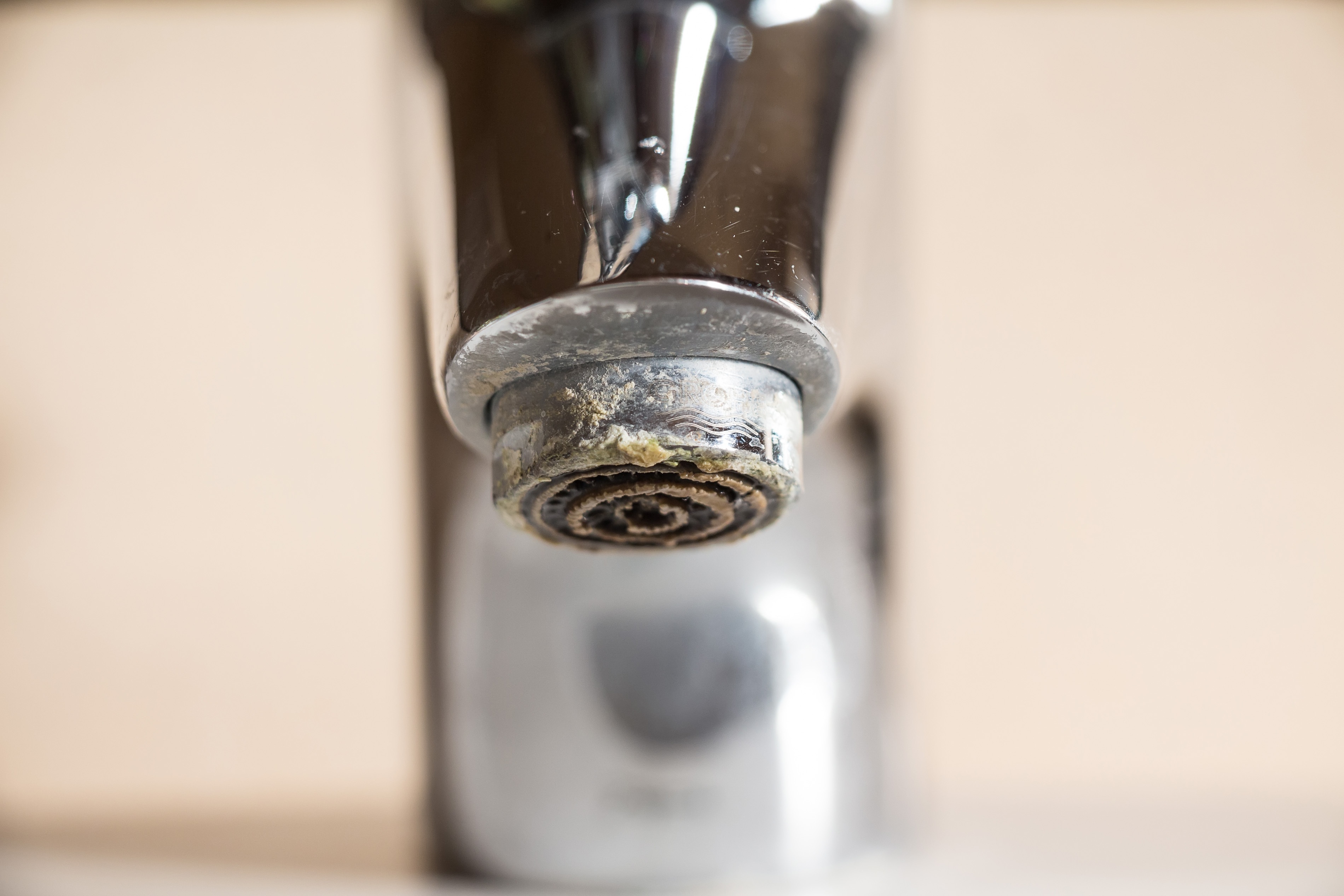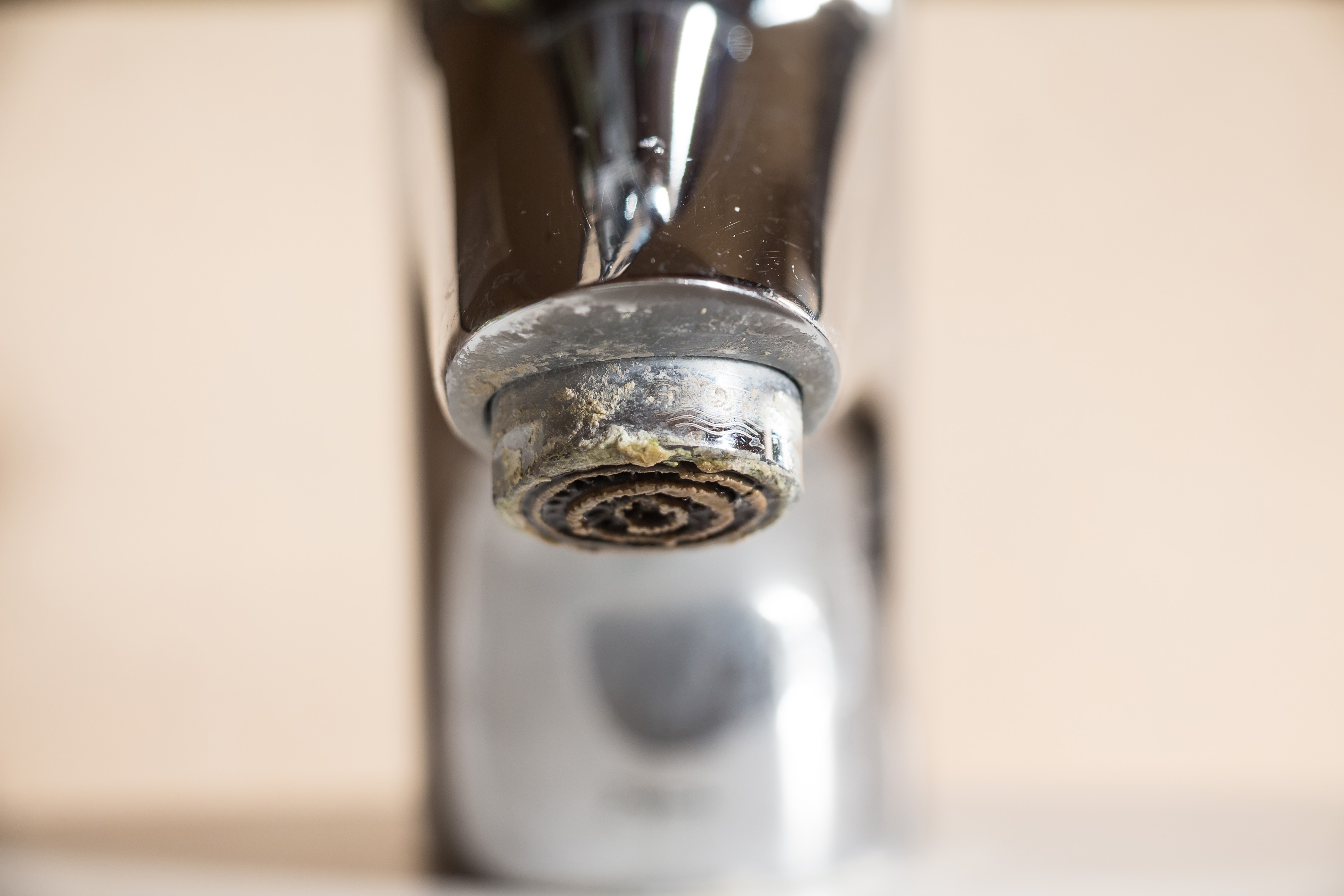
Legionella is a persistent bacterium, and if you give it an inch, it will take a mile. It also has a particularly nasty habit of sneaking up behind you when you’re least expecting it. Take for example in water. While we know that it can become present in stored water facilities, which witness certain changes in temperature, were you aware that the risk of legionella taking hold increases in hard water areas? We’ll explain why in just a minute, but first we need to understand the difference between hard and soft water. Basically it’s all to do with the volume of mineral ions (chiefly calcium and magnesium ions) which have dissolved in a particular water source, which differ significantly in various parts of the UK.
Brace Yourself, Here’s the Science Bit….
There’s acidity to rainwater in its natural form, albeit very weak, due to the carbonic acid which manifests as a reaction between water and carbon dioxide in the atmosphere. Once this rainwater has come into contact with rocks (or soaks into the earth and then permeates subsequent layers of rock beneath) compounds from said rocks dissolve into the water. This resultant hard water then comprises of calcium or magnesium, like for instance limestone; which contains traces of calcium carbonate. Variations in the types of rock more prevalent in different regions of Britain goes a long way to shape the sort of water we can expect as end users.
Briefly returning to the carbonic acid levels in the rainwater, this then reacts together to produce what’s scientifically referred to as soluble calcium hydrogencarbonate. We could demonstrate with a mathematical equation, but we’re not sure you’d stay with us if we did to be honest, so you’ll just have to take our word for it. All you need to remember is that carbonic acid + calcium carbonate = calcium hydrogencarbonate.
How do we know what type of Water We’re Using at Home/Work?
In terms of the general public recognising the difference between hard and soft water, then thankfully we don’t need to ask the boffins again. Simply because soft water is typically identified if you can create a decent amount of lather with your bar of soap, which as a rudimentary indication of hardness of water (or litmus test, if you like) is significantly more challenging to achieve in the presence of hard water. Another trick of the trade is the forming of scum on the surface of the water. The dissolved calcium ions and magnesium ions found in hard water, tend to react with the soap to form scum, ergo the need for much more soap if you’re looking to generate lather.
Scrutinising a map of the country, and notably the eastern counties (largely the south and that corner which reaches towards the south coast, but also encroaching as far inland to the fringes of the Midlands) is hard water central, and habitually classified as ‘hard to very hard’. In contrast, the west of Wales, Cornwall, Devon and Dorset, Cumbria and Yorkshire per se is routinely designated a ‘soft to moderately soft’ water area. According to experts some 13 million households in the UK are directly affected by hard water.
Is Hard Water Really That Bad For Us?
So, you’re now probably wondering at what point this translates into being bad for our health and wellbeing, with direct regards to the spectre of legionella. Well, the adverse effect of hard water comes to bear once it’s heated up and evaporates. So when we’re making a cup of tea in a kettle, or using our central heating systems in the winter. It’s then and there that limescale deposits are encouraged, which in turn leads to the formation of a furry growth in water heating appliances and associated pipework which hard water passes through. And which is predominantly unseen by the naked eye. Washing machines are another prime location where limescale deposits can accumulate, instigating the need to descale the machine from the insides; a process which has to be repeated with affected taps, pipes and water heating appliances, yet which is notoriously tricky to achieve.
Failure to do this could have an effect on the energy efficiency of equipment too, whilst additionally more washing powder is used to counter the effects the hard water has on the soap powder as aforementioned. Which drains both your pocket and impacts on the environment from an excessive use of washing powder and dedicated descaling products perspective. And then there’s the negative effect hard water has on your body, most notably leaving your skin feeling dry and removing the shine from your hair. And that’s before we remind ourselves of the legionella threat. Oh, and did we mention how hard water is detrimental when you’re trying to make a decent cuppa?
So, how do you Combat Hard Water if you happen to suffer from it by Virtue of Your Postcode Alone?
The first line of defence is the timely introduction of water softeners. Conveniently supermarkets stock specialist treatments which target the acidity in the water which can cause a build-up of limescale in both washing machines and dishwashers; however they’re not entirely fool proof. Not to mention time-consuming and not exactly cheap. Applying lemon juice or vinegar to affected areas may sound like an old housewives tale, yet with varying degrees of success can work in relation to taps and showers. Limescale filters are essentially your best bet, which serve to minimise the presence of calcium and magnesium in hard water prior to it entering a particular water-facilitating domestic assemblage.
But How Do Water Softeners Actually Do Their Job?
At least this bit’s relatively straightforward. Water softeners themselves recruit ion exchanges and are the only tried and tested means of eradicating the damaging effects of calcium and magnesium from your water. The sort which come together to inflict limescale at will. Resin beads present in tanks attract these minerals, so replacing them with sodium ions reverses this process, resulting in soft water. Connected by your property’s stop cock (the precise point where water enters your home, and normally located under the kitchen sink), once softened the limescale-free water can then be distributed throughout your house.
Anything Else Worth Knowing?
Yes. Incidentally, dishwasher salt acts as a softener for hard water, and once you’ve determined the severity of your local water, you can adjust your dishwasher’s salt setting accordingly. The general rule of thumb being the harder the water, the higher the level of salt. Or just use the water softener method highlighted above.






